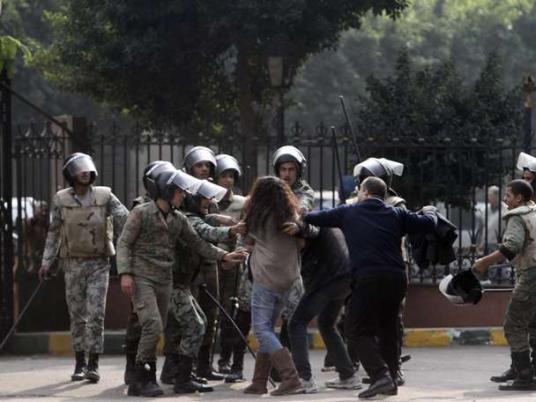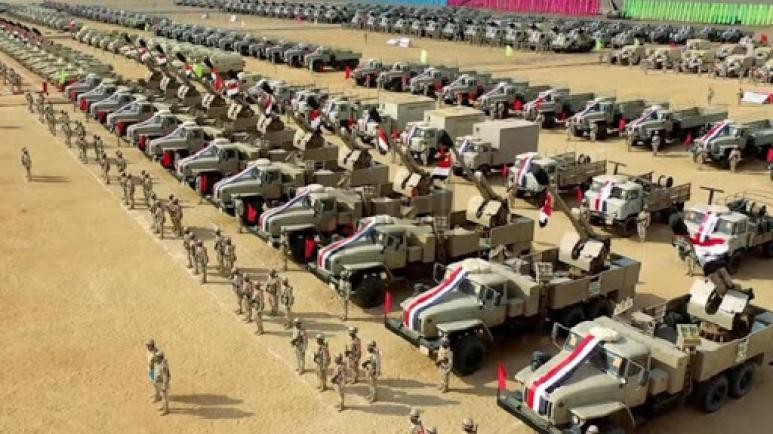
The books burned when the Institut d'Egypte caught fire during clashes in late December were much more important than a woman's honor, a prominent pro-military writer said Monday.
Lamees Gaber was referring to the infamous image of a woman near Tahrir Square during the fighting being beaten by mililtary officers who tore off her abaya, a body covering worn by Muslim women.
Gaber told private TV channel Al-Hayat that she considers issues from a national rather than political perspective, and that a wide segment of Egyptians have become “fed up” with the revolution.
She went on to denounce people for insulting the military, saying that the Egyptian people, the ruling military council and military forces are one entity.
The author said she is not against the revolution, and that her criticism of revolutionaries does not mean she is loyal to the regime of former President Hosni Mubarak.
She also rejected those who doubt the patriotism of Egypt's rulers.
“How can we say that all our rulers are traitors and agents, and that we, the people, are honorable and angels?” she asked.
Gaber was widely criticized for a 23 December article titled "Down with human rights" in the party-run Al-Wafd newspaper, in which she de-emphasized human rights and defended the military's treatment of the protesters around Tahrir.
She had said that the dragging and beating incident was planned to divert public attention from the burning of Institut d'Egypte, adding that “the military is being trapped so its [image] will be tarnished,” which is “a dangerous thing that could lead to the country's downfall.”
Gaber also claimed in the article that the woman wasn't actually dragged by military police, and that she was not more important than the Institut d'Egypte, whose “burned books are more important than the woman's honor.”
She also wondered about the presence of foreign human rights organizations in Egypt, saying, “Why aren't there rights organizations in Israel or Libya? And what are all these sums of money being spent on human rights?”




